Arbutus 'Marina' are we out of the woods?
Hi everyone,
I am curious if you think this arbutus 'marina' will survive this winter? It was only planted in October of 2016 and we got sideswiped with an artic outflow on dec 6th.
A little backstory... this is what I would consider a zone pushing experiment. Being just outside of Vancouver BC (zone7/8). We had an extraordinarily warm winter last year (which had me saying for sure I'm a zone 8). Perhaps I was a little overconfident going as far as planting a satsuma mandarin...ugh...
We have had a much tougher winter this year going as cold as -15c with windchill. And the cold has been sustained for quite a few weeks. Finally the near seasonal temps have returned at about 6c and we should be snow and ice free in a few days! I really hope it makes it!!!
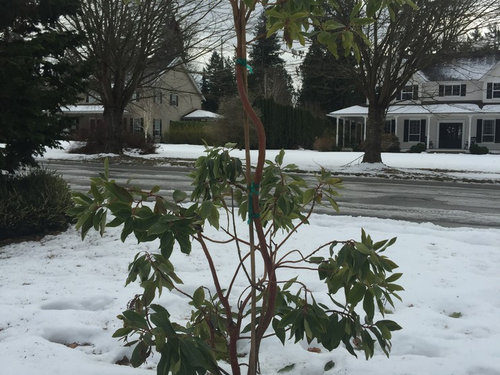
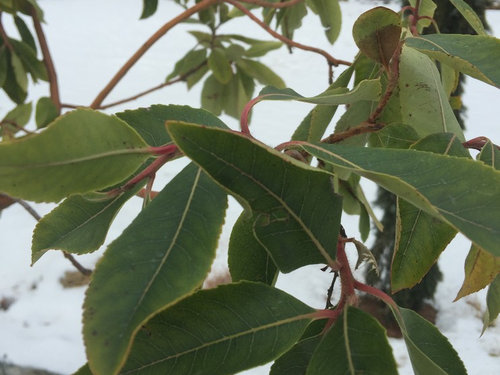

Cheers
Comments (54)
missionmom
Original Author7 years agoGardengal & Embo I appreciate your vast knowledge of so many, many things. Given that we are actually not too much further than a few hours drive and a border crossing apart your views hold particular weight with me :)
I'm still sure you guys are quite a bit warmer down there. I guess it's all in the micro climates...within our regions, towns and even as much as our own yards.
I remember going on a girls trip to tulalip. Weatherman had called for snow but it's such a rare appearance around here that we took it with grain of salt. When we set out from the hotel it was rain, by the time we reached Bellingham it was a complete whiteout with spunout cars lining the highway the whole way home. When we finally reached the Border...yet again no snow.
Embothrium
7 years agolast modified: 7 years agoStands of native Paper Birch from near Tulalip to Vancouver indicate a colder climate. Fraser Outflow comes down into Northwest Washington. Vancouver is cooler and rainier than Seattle.
During the killer winter of 1990 the cold front that blew in dramatically one day in November bypassed UBC and went across North Vancouver.
Related Professionals
Kapaa Landscape Architects & Landscape Designers · Coeur d'Alene Landscape Contractors · Cordele Landscape Contractors · Vancouver Landscape Contractors · Waipahu Landscape Contractors · Welby Landscape Contractors · Irvington Landscape Contractors · Downers Grove Siding & Exteriors · South Glastonbury Siding & Exteriors · Boise Decks, Patios & Outdoor Enclosures · Boise Decks, Patios & Outdoor Enclosures · Cedar Falls Decks, Patios & Outdoor Enclosures · Kalamazoo Decks, Patios & Outdoor Enclosures · Methuen Decks, Patios & Outdoor Enclosures · Vero Beach Decks, Patios & Outdoor Enclosuresmissionmom
Original Author7 years agoAgreed, then. You lucky ducks are warmer there. A few summers ago I visited point Roberts and they had calla lilies naturalized in the ditches. My neighbor had some limp along for a few years but eventually succumbed.
missionmom
Original Author7 years agoGardengal-- just thinking I too have an arbutus unedo compacta. It looks great through this cold snap (although it has an extra year in the ground on the marina). Do you think it is ultimately hardier than the marina? If they are of similar hardiness then I should have no worries I suppose, as the unedo has sailed through cold like a champ!
gardengal48 (PNW Z8/9)
7 years agoI believe A. unedo is hardier than 'Marina' by at least a zone so Marina likely borderline hardy for you unless in more of a microclimate. By my observation, trees in exposed situations tend to suffer more cold damage than those in somewhat more protected locations.
My 'Compacta' is about 4'x4' (so maybe 1/2 a standard size) and is going to get planted in the ground this year. I am bored with many of my container plantings and need to switch them out. And the shrub could do with a decent root pruning as well....it's been awhile :-)
Embothrium
7 years agolast modified: 7 years agoColdest winters here burn Arbutus unedo also. Otherwise it is a long used more or less standard landscape shrub in this area. At least in locations near salt water.
At least part of the time stock sold here as 'Compacta' has been an obvious seed strain with varying flower colors, including pink. And supposedly the true item does not flower much, making none of the material I have seen here being correct if this is in fact the case.
'Elfin King' is supposed to be quite dwarf but I seldom encounter it. So when I did find plants so labeled a few years ago I snapped one up. Located on sandy soil against the south end of my house it has shot right up. So this may be another where there is little or no true to type representation on the local market.
By 2014 'Marina' was being listed as belonging to A. x reyorum (A. x andrachnoides x A. canariensis) so apparently somebody decided they had figured out its parentage. A. x andrachnoides has been successful in Britain but other than Steamboat Island nursery in Olympia offering it in the past I haven't seen any indications of it being present here (possibly one as yet undetermined arbutus I've seen from the street in E Seattle may turn out to be this one). A. canariensis I don't think is expected to be hardy here. This half of the parentage is probably what accounts for 'Marina' being less well adapted in the North.
According to The Hillier Manual of Trees & Shrubs 'Marina'
Performs best where summers are warm, especially in maritime gardens
You can see a general preference for sunny positions that are hotter than surrounding terrain during open weather, have good drainage even in the locally native species. When I worked on an expansion of the camellia collection in the Seattle Arboretum Madrona Trees that were removed from the sandy hilltop where the new planting was to be made had actually turned the soil within their drip lines into a sort of yellow sand, as though they had been using a chemical process to make it even more to their liking.
A common soil characteristic is good internal drainage and low moisture retention in summer.
The species was judged the least frost-resistant tree native to British Columbia. Occasionally, madrones in Washington and Oregon are damaged by severe frosts.
https://www.na.fs.fed.us/spfo/pubs/silvics_manual/volume_2/arbutus/menziesii.htm
davidrt28 (zone 7)
7 years agolast modified: 7 years agoA. x andrachnoides is undoubtedly hardier than A. 'Marina', and they clearly are not of the same grex; however if there aren't already huge ones in Seattle and Vancouver, I would wonder if the OP can expect it to become a tree, either. It's been around for a while.
I have to say though, it looks pretty good for having seen -15C...
missionmom
Original Author7 years agoThank you Embo, that was a great link to read especially as an arbutus lover! I wonder how arbutus unedo would fair in light shade? My marina I have situated in full southern exposure at the top of a 4ft granite blast rock wall (may be the trees saving grace this winter as I'm assuming the drainage is quite adequate here). I also have sandy, silty soil as I am quite close to the Fraser.
Also my arbutus unedo compacta was absolutely loaded with flowers this summer which drew quite the spectacle of humming birds btw.... but here I thought mine was special LOL!!!
missionmom
Original Author7 years agoDavid, this is true about expectations. I shouldn't have any here... they say that's the lead up to some fine disappointment. However it's interesting because the tree was sold locally from a wonderful nursery and it wasn't overly expensive either. I also planted an Owari satsuma (zone 8 - apparently hardy to -10c) even earlier and placed it on my southern facing wall under the eaves and well...
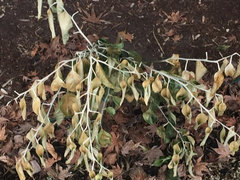
davidrt28 (zone 7)
7 years agoYep, well, they are hardier than Satsumas. Which probably want more heat than you have to be fully hardy, anyhow.
missionmom thanked davidrt28 (zone 7)Embothrium
7 years agolast modified: 7 years agoIf you're on the River you are probably getting maximum Fraser Outflow effects. Very few lasting outdoor citrus are seen even in Seattle.
gardengal48 (PNW Z8/9)
7 years agoIt is pretty common to see the frost damaged foliage of the Pacific madrone in late winter and early spring. Ones that don't show it are usually tucked away in a more forested area. Even Puget Sound coastal specimens show the effects. The problem is that the myriad of fungal and blight issues that affect these trees will produce a similar "burnt" appearance so one is never sure what the cause is unless a tree one monitors closely.
I spec'd 5 Marinas in a garden in the Laurelhurst neighborhood of Seattle about 15 years ago. Last I checked - maybe 3 years ago - they were all doing fine and had reached an significant size. So the potential is there for these to succeed in this climate but perhaps not uniformly in all situations. And I have never seen Arbutus unedo damaged by winter cold in this area (west Puget Sound)..........a few other BLE's, yes, but never the strawberry tree.
missionmom thanked gardengal48 (PNW Z8/9)missionmom
Original Author7 years agoWell... the owari didn't scare me off citrus just yet. I ordered a few yuzu ichandrins this spring to try.
Good to hear about those arbutus marinas in Seattle gardengal!!! I feel optimistic when I hear your views on this. I'm going to go ahead and quote you "it's a tougher tree than you think"
:)
Embothrium
7 years agoLike many other locally common broad-leaved evergreens including Fraser photinia many Arbutus unedo were burned by winter conditions in 1990.
Sara Malone (Zone 9b)
7 years agoIn my experience (which is admittedly different that those in the PNW), both A. unedo and A. 'Marina' do fine in light shade. In fact, A. unedo appears to be about as bullet-proof a plant as I can imagine. You can cut it to the base and it pretty much looks like it's old self within a couple of years. It can go for months in summer without water, can withstand deluges in clay soil, etc. About 20 years ago a local nursery went out of business and we took our 5-horse trailer over and bought 100 #5 A. unedo for several dollars each. At that point our large property was virtually plant-less. They are all still alive, despite having been planted out in July with no root treatment. The funky thing is that apparently some were 'Compacta' (I had someone do the planting and he dutifully put every tag in a pile, and I didn't discover until afterwards that they were not all species) and we used them largely as hedges along drives and fences. So every now and again there would be one dwarf!
We got to the high 20s for 10 days after very little rain in Dec 2013 and I had many plants affected (mostly Australians) but the Arbutus were all untouched. 'Marina' is much showier and makes a much prettier tree, but you could a whole lot worse than unedo, which is much tougher. 'Marina' languishes in poorly drained soil and often just ups and dies in that situation.
missionmom thanked Sara Malone (Zone 9b)Embothrium
7 years agolast modified: 7 years agoThe only Citrus I personally have seen succeed here was C. trifoliata. With the continuing interest in edible landscaping I've encountered various other "hardy" citrus at independent outlets here - perhaps by now all the main types. None of these have appeared northern adapted, with them having the same vivid yellow green, hot climate type of foliage color as the overtly tropical citrus. And doing things like still having tender, recently made shoot tips late in the year.
A horticulture industry friend that is California Special oriented mentioned one time noticing a citrus of some size on a local property. As I remember it they seemed to be indicating at the time it was of the ilk of a lemon but I've never seen this same individual specimen myself, don't recall if we established that it was definitely not C. trifoliata.
In all our years of discussing such things this party only mentioned this one sighting. And they are somebody who has worked on properties in the area for decades, tends to get around by bus and on foot - has therefore plenty of opportunity to look around.
Especially if you are getting the full blasts of the Fraser Outflow you will probably have to use spring only planting, heavy mulching and the erection of wind shelters to be able to get any Zonal Denial plants to take hold and persist.
As it is still staked even after attaining some height the 'Marina' is probably root bound - a pandemic problem with container grown nursery stock - and may need a permanent support to remain erect. I have seen multiple other planted examples lean over down here.
Yours is also slightly chlorotic so you might try dusting it with a granular fertilizer product labeled for rhododendrons and azaleas.
missionmom thanked Embothriummissionmom
Original Author7 years agoThanks Sarah, I agree that the arbutus marina is a bit more spectacular than the unedo but both are lovely trees. It's that undulating red bark that is just divine. I went on a tangent looking for the reddish barks this year and added a stewartia monadelpha, sango kaku as well as an acer griseum. The arbutus is by far my favorite...
missionmom
Original Author7 years agoThis is very interesting embo regarding the sizeable Seattle citrus. I would be so curious to know the conditions it was planted in for success... oh well...
here's a link (I hope it works)
http://events.r20.constantcontact.com/register/eventoeidk=a07ediubv8pd79a7596&llr=opu4rpfab
to Phoenix perrenials, where my Owari is from as well as my yuzu's on preorder. Now I'm feeling like his website is overly optimistic... LOL ... it's like they are in sales or something?!Yuzu Ichandrin - Yuzu is prized in Japan for flavoring, juice and preserves producing abundant, easy-to-peel, 3 inch diametre fruit with tasty, lemon-lime flavour. It has also become a hot item for foodies in North America. This Citrus is super hardy to about minus 18 degrees Celsius and can be easily grown outdoors in coastal BC year round. Zone 7.
Embothrium
7 years agolast modified: 7 years agoBefore putting much more into attempts at citrus in your location you may want to look for hobbyists talking on the internet about being able to overwinter them in your area
- For significant periods of time - the more years the better
- As far from salt water as you are
Against a wall right at the beach along a sheltered cove somewhere is not the same situation as you have. And being able to keep one for even several years does not demonstrate reliable and useful long term hardiness. Garden centers down here often have lots of USDA 9 (or even higher) stuff on display that will do more or less okay planted out on local properties. Until it does get down to that specific temperature they can't handle.
missionmom thanked Embothriumgardengal48 (PNW Z8/9)
7 years agoYou might want to do some research through the archives of this website: The Cloudforest Gardener. It is dedicated (more or less) to the growing of tropicals - primarily citrus - in the PNW.
missionmom
Original Author7 years agoThanks gardengal! I will definitely peruse the info here! While I have you here, may I ask another question? Off topic but hopefully not too troubling to anyone :)
I was looking on great plant picks today and saw they had listed the hybrid trumpet vine 'madame galen'. This surprised me because I have read horror stories on garden web. Usually I find their recommendations pretty bullet proof around here. Do you have any opinion on this? Thanks as always for your time :)
gardengal48 (PNW Z8/9)
7 years agoI'm surprised to see it listed as well but then, some of the GPP's are a bit specious to my mind also :-))
While maybe not quite SO aggressive as regular trumpet vine, Campsis radicans, the hybrid 'Madame Galen' does exhibit many of the same tendencies, including producing root shoots. I don't remember for sure but that may have been the selection I planted in my old courtyard garden to attract hummingbirds - the salmony-cantaloupe coloring is dead-on! It for sure attracted the hummers but it also managed to pop up between the pavers throughout the entire courtyard!! Took me about five years to remove and I still saw a few persistent root shoots after that. For all I know, it may still be sending up shoots, almost 10 years since I moved from that garden!
As an aside, it was also very messy with its dropping of the old flowers. They would carpet anything underneath and because it is such a heavy bloomer, there were lots of these!! And they tended to mildew piled on top of each other - unpleasant to clean up.
If appealing to hummingbirds is your intention, I'd pick another vine :-) I can't recommend any trumpet vine in good conscience!!
missionmom thanked gardengal48 (PNW Z8/9)missionmom
Original Author7 years agoDarn... I was expecting to hear that but had my fingers crossed maybe the "hybrid" was different. I love our humming birds and try to offer as much naturally occurring bird/bee/butterfly food as I possibly can. Coming full circle in our discussion, I recall last year when my arbutus unedo and the recently purchased marina were in full bloom the hummers were crazy about them!
To be fair I'm thinking I might have the best location if possible for the trumpet vine to work? We built a huge 6x6 beam arbor to suspend swings for the kids now and eventually a swing chair when they are teenagers and beyond. It's surrounded by lawn and full sun. I currently have actinidia kolomikta (one male one female because I do like the fruit) but I feel like they aren't super thrilled in this spot... and my husband who's only garden chore is grass cutting is a little careless around them. I was thinking trumpet might take such abuse. Still most likely a bad choice I know... :'(
gardengal48 (PNW Z8/9)
7 years agoYour site sounds about as good as it gets for trumpet vine :-) If located somewhere fully surrounded by lawn and well away from any planting beds or hardscaping, the routine mowing of the lawn will keep most root shoots under control. They will still appear but keeping them cut back with the lawn mower will keep this vine from getting out of control.
The only other solution would be to use something like a bamboo barrier to surround the planting. And I would still be a bit nervous about that!
missionmom thanked gardengal48 (PNW Z8/9)missionmom
Original Author7 years agoThank you for the advice. Perhaps I'll see what I can find this upcoming season in the nursery's as far as "hybrid trumpet" goes. The hot color of the trumpet vine would complement my high contrast gardening style nicely. I have a forest pansy that would be the backdrop.... thinking that would be a neat combo. The kiwis could go along the chain fence in a bit more shade.
I guess errant trumpet shoots wouldn't be too different from the blackberries that constantly come over from my one neighbors "natural" yard... and the morning glory from my other neighbors yard that I'm constantly pulling... LOL. It is a way of life around here, no complaints I swear ;)
Embothrium
7 years agolast modified: 7 years agoSummer Jazz Fire Campsis is on the market down here, is supposed to produce a small shrub.
If you look at the 2008 Timber Press Trees For All Seasons book by Sean Hogan (about broad-leaved evergreen trees) you can find specific information about hardiness of 'Marina' in the north (his summation: "Bummer") and his results with specific "hardy" citrus in Portland. Including one that produces large fruits.
missionmom thanked Embothriummissionmom
Original Author7 years agoI will have to source this book since you reccomend it. Too bad the 'marina' in his experience isn't great. I'm still hopeful, and in my eyes it's half the fun. Granted I haven't had too many years of experience (and losses) under my belt, so my position may in fact change. Lol.
Now the campsis is just interesting to me. It's a lovely plant in photos but I cannot stop reading these horror stories about it, which is also why I am so very surprised to see it on GPP... have you ever seen the apparently much milder mannered cousin crossvine - bignonia capreolata? If what they say is true then I think I want one...or two....and that solves all the troubles.
For every 5 negative remarks I've managed to dig up on old threads about TV there happens to be the one "what are you guys talking about mine is well behaved and beautiful". This has me thinking it must be one of the most controversial plants going.
So I am absolutely confused. Luckily the ground is still frozen... so I haven't made and hasty moves just yet!
Embothrium
7 years agolast modified: 7 years agoI've seen one established cross vine here, on the hot side of a house near a hot driveway close to the international airport south of Seattle. Otherwise I've only seen young plants in garden centers. So I don't know about it holding up well in Mission.
If you have a copy of the last edition of the Sunset Western Garden Book you can see how they mapped Vancouver etc. in a colder zone than Seattle. The Willamette Valley is comparably cold to Vancouver in winter but has a hotter summer that brings on various plants better than Vancouver (or Seattle). This is one of the reasons why it is a major horticultural crops production area.
If you don't have one of these you might like to buy one as you can instantly see if they have any plants they treat and are also what you are interested in zoned for your area.
Sara Malone (Zone 9b)
7 years agoI apologize for repeating myself but in my experience the most important issue when siting 'Marina' is excellent drainage. That may well be the different between one specimen surviving in cold and another not (or languishing). Parkinsonia, for example, are borderline here, and the best way to ensure success is to plant them in spots with excellent drainage.
Embothrium
7 years agoYes 'Marina' here often look here like they don't like the soil texture or mineral content.
missionmom
Original Author7 years agoSo true Sarah! I believe my 'marina' has survived this winter, which was extreme for us. It is sited in the spot with the very best drainage on my lot. Perhaps this is the exact reason it has made it this far. I'll keep you guys posted on the development or lack thereof this summer :)
missionmom
Original Author7 years ago
Ok just to illustrate perhaps the difference between us PNWers just above the 49th and just below. I believe you all are getting rain today in the greater Seattle area vs the greater Vancouver area. We got just enough cold air from the north to turn our precipitation into this...not again!!!!User
7 years agolast modified: 7 years agoOn the East Coast there has been a (possibly dwarf variety), growing for decades at The Cloisters medieval herbal/medicinal garden, courtyard (northern Manhattan island, NYC). Pretty much near its northern limit on this coast. This posting reminded me of my first introduction to that particular tree (and my introduction to the species), and I just ordered one to give it a try in my own Mediterranean-themed garden area in an eastern. zone 7.
P.S., this year, the Pacific Northwest's frigid winter was counterbalanced in the East by record, ridiculous warmth (after two winters of multiple "polar vortices"!), now nothing but sunshine and no snow. Come on Spring!
http://blog.metmuseum.org/cloistersgardens/2009/11/04/late-bloomer/arbutus-unedo-rdo_324/
missionmom thanked Usergardengal48 (PNW Z8/9)
7 years agoHasn't been at all frigid in the central Puget Sound area - pretty much a normal winter with normal weather patterns. In my slightly more balmy location (just a block up from the water), we haven't even had any snow other than a dusting that melted almost as soon as it touched ground. but as mm notes, there can be a substantial difference in both weather and temperatures between the 49th lat and the 47th, thanks to the effect of the Fraser Valley outflow.
Embothrium
7 years agolast modified: 7 years agoYes: we have not had a frigid winter out here. And continental air coming down the Fraser corridor makes conditions in SW BC and NW WA different from those in areas farther to the South and West. TV weather reports consistently show lower temperatures for Bellingham than most, if not all other western WA locations used in a typical spread. Noticeable native stands of the cold climate indicator Paper Birch appear in view of I-5 somewhat north of Everett and then continue off and on to Vancouver.
Embothrium
7 years agolast modified: 7 years agoMore about 'Marina'. I was checking his web pages for current offerings and saw this vendor's depiction of its site tolerance. As you can soon see looking at his listings like Sean Hogan this is a guy who is specifically focused on promoting and using California climate plants farther north, yet still says about this particular Arbutus:
For sheltered Northwest Gardens only, it's hardy to about 15°F. Perfect in downtown Port Townsend.
missionmom
Original Author7 years agoThank you embo. You guys have such great sources in the US I have a tinge of jealousy...how I wish I could bring dirt across the border lol!
Up here we are declaring this the coldest winter in 30 years, so I suppose in my lifetime. That being said should the Marina make it through (not without plenty of damage at this point) It will be a great feat of hardiness. I will post a photo when I'm done my morning coffee... To clarify I'm not at all optimistic about it making through this winter at this point. It looks terrible.
But, perhaps you remember we were discussing a broad leaved hedge in this very spot, to screen out the street. Which means I was planning to move this poor tree anyways. From what I've read about these guys this is a death sentence in and of its self.
Sara Malone (Zone 9b)
7 years agoI have never moved one successfully. And I've moved a LOT of trees. Stay warm. You evidently got the cold; we got the rain.
missionmom
Original Author7 years agoThank you Sarah! Hope everything is well and good down there for you... I know rain is a great thing but not when dams are overflowing and landslides are happening! Stay safe :)
Sara Malone (Zone 9b)
7 years agoWe're fine but I have never seen so much standing water and flooding. We have three dry days in a row so I might be able to get out and do some weeding (which is clearly going to be my #1 chore this spring!) but it's going to rain all weekend. Then supposedly dry for a while. Just spoke to a friend in Portland last night and he said that they are having the rainiest February on record - just broke the previous record - and it's only the 23rd...
gardengal48 (PNW Z8/9)
7 years agoWe are not quite at the record breaking level for February rainfall totals but getting very close. It is supposed to be dry the next few days and then only showers so the predictions that this month would be a record breaker may not come to pass. Perfectly OK with me!!
They are also tossing about the "s" word for tomorrow night but probably just at the higher elevations.......I hope. Other than a bit wetter than usual, this had been a very ordinary winter through much of the Puget Sound area.
Anna
6 years agolast modified: 6 years agoI'm really curious... Did missionmom's Arbutus marina survive the winter? I've recently purchased an Arbutus marina (because I just couldn't help myself) and I'd like to know its odds in my neck of the woods. I'm outside of Vancouver, BC, but perhaps in a milder area than missionmom. I'm just a few blocks east of the ocean and pretty close to the US border and I've had great success with other borderline hardy plants in my garden.
gardengal48 (PNW Z8/9)
6 years agoThere are numerous examples of established 'Marina's in milder areas of the Puget Sound region so I would be reluctant to call it 'borderline hardy' anywhere close to the water. Numerous examples here on Bainbridge Island. But then, this is an arbutus favorable area overall ;-))
Like any broadleaved evergreen tree, subject to some leaf damage in colder winters but the tree itself should be sufficiently hardy once established.
Embothrium
6 years agoNot every broad-leaf evergreen burns here, some are more hardy than others. With 'Marina' not on the more hardy list. Down here hyper-maritime sites around Puget Sound can be Californian mild. Up your way you have full effects of the Fraser Outflow. See the climate zone mapping and Fraser Outflow sidebar in later edition(s) of the Sunset Western Garden Book.
missionmom
Original Author6 years agoHi guys, sorry I've been absent... so busy fighting the good fight against the weeds!
Unfortunately my marina didn't make it through this past winter :(
Anna, I wouldn't worry too much about it.... we had such a cruel winter and most certainly you are just that much more mild in climate than me. I was in Vancouver for Canada day weekend and was constantly reminded of that fact. Not sure of the variety but there are plenty of well established (20+ year old) eucalyptus trees here and there.
That being said I managed to find a small native arbutus that I've planted amongst my rocks. I suppose the arbutus journey continues :)
cheers
Anna
6 years agoThanks... I'll keep my optimism and hope for the best for my Arbutus marina. I've picked a spot in full sun (of course) with good drainage, etc etc. I've given up on the native Arbutus (at least temporarily). I've tried several times and have had limited success, though I've never had one die due to harsh winters. They always seem to die in late spring / summer / fall, for no apparent reason (which the native Arbutus is known for). The last one I had lasted for 4 years. It was a nice looking, healthy little tree and then, poof, it just decided to die in mid-July. I hope you have more success than I with that that one. I am (probably temporarily) content with looking at the huge healthy native Arbutus across the street in my neighbour's yard.
gardengal48 (PNW Z8/9)
6 years agoNative Pacific madrones are not amenable to cultivation. They dislike garden settings where there is any sort of summer irrigation. They want exceptional drainage, typically rather poor soil and no shade. They also do not transplant easily and are seldom sold, except by a few native plant specialty nurseries. And since they have a plethora of disease issues and are in serious decline in many areas, they are just not a good choice for a home garden.
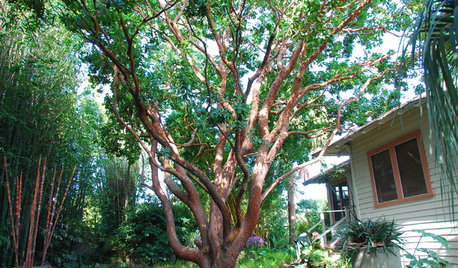
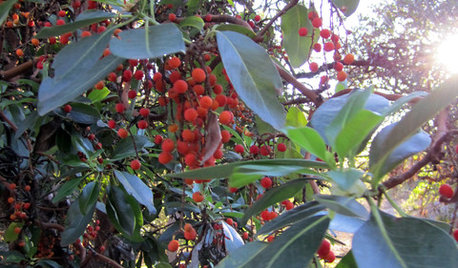
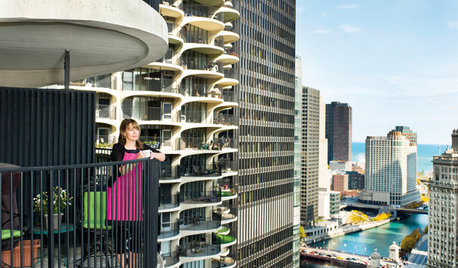
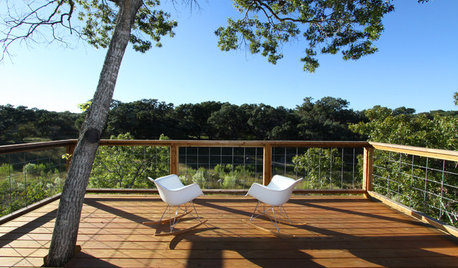

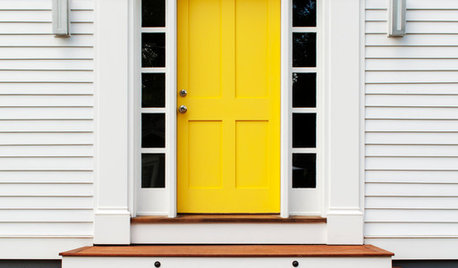

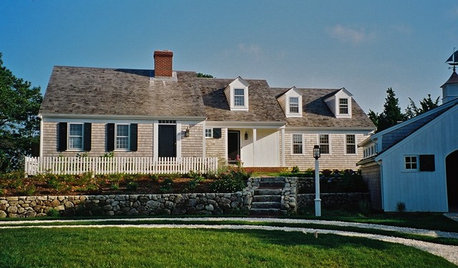

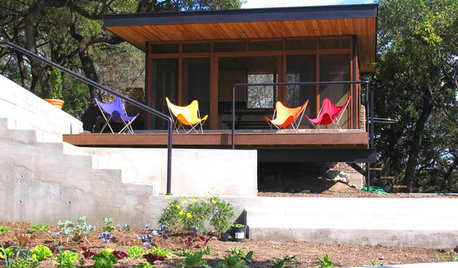







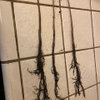
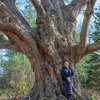
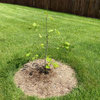
Sara Malone (Zone 9b)